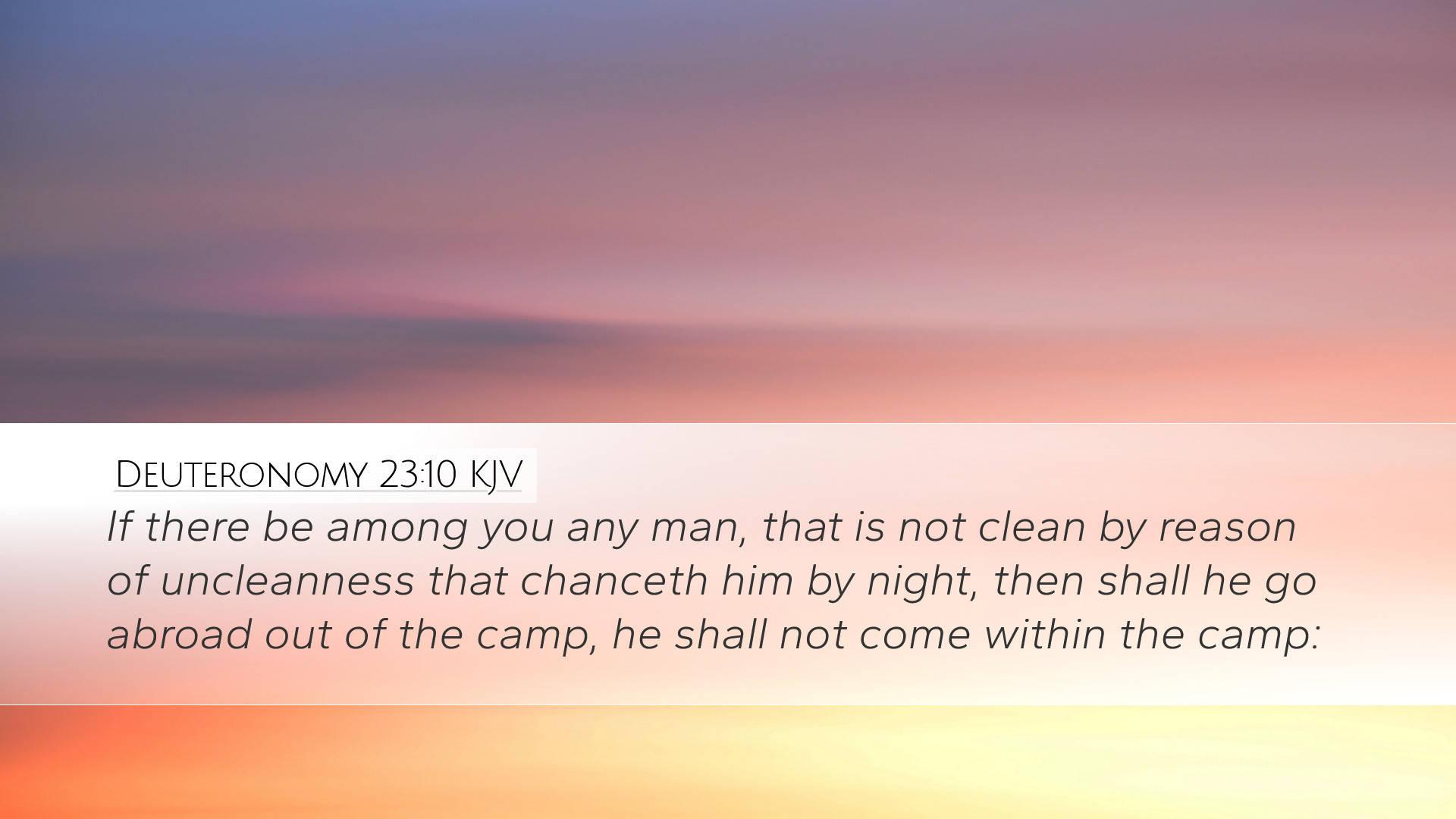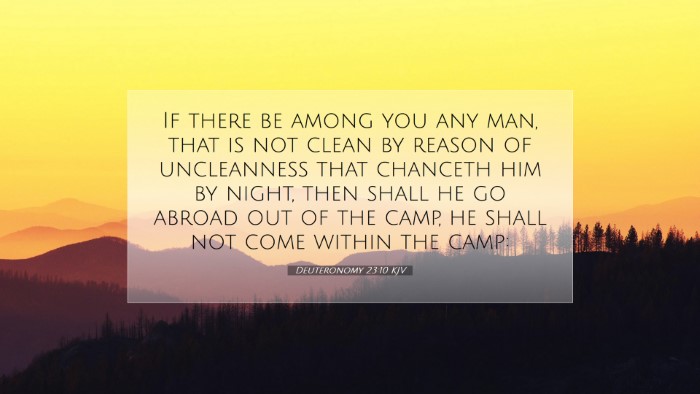Commentary on Deuteronomy 23:10
Verse: "If there be among you any man that is not clean by reason of uncleanness that chanceth him by night, then shall he go abroad out of the camp; he shall not come within the camp:" (Deuteronomy 23:10, KJV)
Introduction
This verse is part of the broader legislative framework that God provided to the Israelites as they prepared to enter the Promised Land. Central to the holiness code within the Pentateuch, this verse addresses the significance of ritual cleanliness and its relation to community worship and interaction.
Understanding Uncleanness
Commentators such as Matthew Henry emphasize that the term "uncleanness" refers to a ceremonial state that may be induced by various natural or domestic occurrences. Uncleanness in this context is not solely moral but can stem from physical circumstances, such as nocturnal emissions or other conditions that would render a person unsuitable to participate in communal worship.
Albert Barnes adds that this provision serves as a protective measure for the community. By maintaining a standard of cleanliness and separating those who are ceremonially unclean, the camp remains pure and suitable for the presence of God during worship. This reflects the Lord's holiness and His demand for His people to mirror that holiness in their communal lives.
The Purpose of Separation
This separation is part of a wider teaching about the importance of physical and spiritual purity in the community. Adam Clarke highlights that such separations were to be temporary, emphasizing rehabilitation and restoration rather than perpetual alienation. Once the man became clean, he would be permitted to return to the camp.
- Restoration to community: The unclean were expected to undergo the necessary rituals to be reinstated in society.
- Possible perceptions of holiness: The community’s collective devotion to holiness was perceived through these mandates, demonstrating their covenant relationship with God.
Lessons for Today
For pastors and theologians, Deuteronomy 23:10 underscores the importance of community standards. As the New Testament teaches about the church as the body of Christ, the biblical principle of maintaining purity can be correlated with spiritual accountability among believers. The separation of the unclean conveys a deeper spiritual truth: those who live in sin or are caught in distractions must undergo processes of repentance and restoration.
Moreover, the focus on uncleanness and cleanliness reflects God's desire for purity in worship. Matthew Henry famously states, "The purity of the camp was essential to the presence of God among His people." This invites contemporary believers to reflect on their purity and spiritual readiness before participating in communal worship and serving in church life.
Implications for Worship
The principles drawn from Deuteronomy 23:10 have implications not only for personal holiness but also for corporate worship. Albert Barnes remarks that the purity of lifestyle will pass into the worship life of the community. Thus, pastors and church leaders have a responsibility to teach these principles effectively, ensuring that congregational life is marked by an awareness of the holiness that God expects.
- Preparation for worship: Church members should be encouraged to prepare their hearts and lives before entering corporate worship.
- Community accountability: Ensuring that members engage in mutual accountability fosters an environment conducive to spiritual growth and purity.
- Role of repentance: The acknowledgment of personal shortcomings leads to collective growth, demonstrating the grace of God in restoring believers.
Conclusion
Deuteronomy 23:10 may appear to be a legalistic verse concerning ceremonial cleanliness; however, it encapsulates profound truths about God's desire for a holy people who reflect His character. The insights from Matthew Henry, Albert Barnes, and Adam Clarke elucidate the practical implications of this commandment for the community of faith. It reminds pastors, theologians, and students alike of the vital connection between personal holiness and corporate worship, emphasizing the overarching narrative of restoration and holiness found throughout Scripture.


